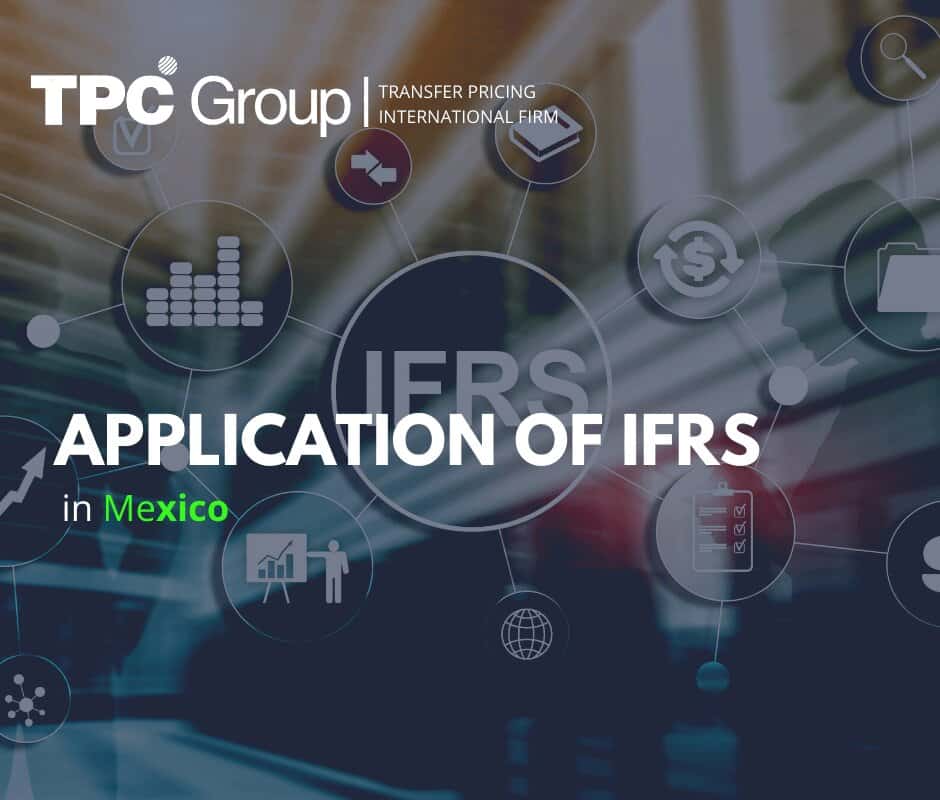IFRS Importance in Mexico
The international regulatory framework has played an important role in financial reporting in Mexico. In fact, this country has adopted IFRS for all companies listed on the stock exchange, other than financial institutions and insurance companies, whose implementation began for those annual reporting periods from January 1, 2012.
Companies belonging to the financial and insurance sector use the Mexican NIF (Normas de Información Financiera – Financial Reporting Standards) plus certain requirements established by the CNBV (Comisión Nacional Bancaria y de Valores – National Banking and Securities Commission) and the CNSF (Comisión Nacional de Seguros y Fianzas – National Insurance and Bonding Commission).
Regulatory Entity
The CINIF (Consejo mexicano para la Investigación y desarrollo de Normas de Información Financiera – Mexican Board for Research and Development of Financial Reporting Standards) was created in May 2002 as an independent body to converge local accounting standards. CINIF’s challenge is to lead as a body in the development and improvement of accounting standards, having as purpose the development of transparent, objective, and reliable financial reporting standards related to the performance of economic and governmental entities, which must be useful for issuers and users of financial information.
To achieve this, it performs research and consultation processes among the financial and business community and other interested sectors, resulting in the issuance of documents called Financial Reporting Standards (NIF), Guidance to Financial Reporting Standards (ONIF), whose improvements contained in a document, propose changes thereto and to INIF (Interpretaciones a las Normas de Información Financiera – Interpretations to Financial Reporting Standards) as clarifications and guidelines to implement the NIF.
The CINIF counts on an assembly of associates composed of:
- Association of Banks of Mexico.
- Mexican Association of Securities Intermediaries.
- Mexican Institute of Finance Executives.
- National Association of Faculties and Accounting and Administration Schools.
- Mexican Stock Exchange.
- National Banking and Securities Commission.
- National Insurance and Bonding Commission.
- Business Coordinating Council.
- Mexican Institute of Public Accountants.
- Secretariat of the Public Function.
- Secretariat of Finance and Public Credit.
- Mexican Association of Insurance Institutions.
- Mexican Council of Businessmen.
The NIF policy is to converge the local standards used by the several economic sectors and as much as possible to the International Financial Reporting Standards (IFRS) issued by the IASB (International Accounting Standards Board).
Structure of Mexican standards
The NIF structure provided in NIF A-1 is similar to that of the IFRS issued by the IASB since these are also comprised of conceptual and specific standards:
- The NIFs and INIFs issued by the CINIF.
- Bulletins issued by the CPC not modified, replaced, nor repealed by the new NIFs.
- The IFRS applicable on a supplementary basis.
The NIFs are comprised of four main sections:
- Conceptual Standards comprise the so-called conceptual framework. It establishes the fundamental concepts serving as rational support for the NIF development and as a reference for the solution of the problems arising in the accounting practice.
- Particular Standards establish the specific basis for the valuation, filing, and disclosure of transactions, internal transformations, and other events that economically affect an entity to issue financial information at a given place and time.
- The function of the INIF is to clarify or expand on issues already dealt with in some NIFs (NOT ASSIGNED) and provide timely guidance on new problems detected in the financial information not specifically dealt with in the NIFs or on unsatisfactory or contradictory treatments developed.
- The ONIFs are guidelines on emerging issues that require prompt attention, which are not subject to scrutiny, i. e., they are not mandatory.
The NIF are grouped as follows:
Series NIF A – Conceptual framework.
Series NIF B – Standards applicable to the financial statements as a whole.
Series NIF C – Standards applicable to specific concepts of the financial statements.
Series NIF D – Standards applicable to problems in the determination of results.
Series NIF E – Standards applicable to special activities of different sectors.
Since 2006, the CINIF has updated and issued a set of new standards. During the years ended 2018 and 2019, there were important changes that may have significant impacts on the Financial Statements.
The standards that became effective as of January 1, 2018, are as follows:
- NIF B-17, Determination of fair value.
- NIF C-2, Investment in financial instruments.
- NIF C-3, Accounts receivable.
- NIF C-9, Provisions, contingencies, and commitments.
- NIF C-10, Derivative financial instruments, and hedging relationships.
- NIF C-16, Impairment of financial instruments receivable.
- NIF C-19, Financial instruments payable.
- NIF C-20, Financing instruments receivable.
- NIF D-1, Revenue from contracts with customers.
- NIF D-2, Costs from contracts with customers.
The standard that became effective from January 1, 2019, is as follows:
- NIF D-5 Leases.
Mexico chose to implement the complete version of IFRS with a convergence plan building its accounting standards body called NIF (Mexican Financial Reporting Standards) without neglecting IFRS (International Financial Reporting Standards) issued by the IASB (International Accounting Standards Board).
Mexico continues developing NIFs by submitting auscultation projects. Likewise, it presents improvements to the NIFs because the issuers of accounting standards emphasize the importance of following up on the NIFs already issued since they are constantly evolving to be updated based on international standards and regulations.




